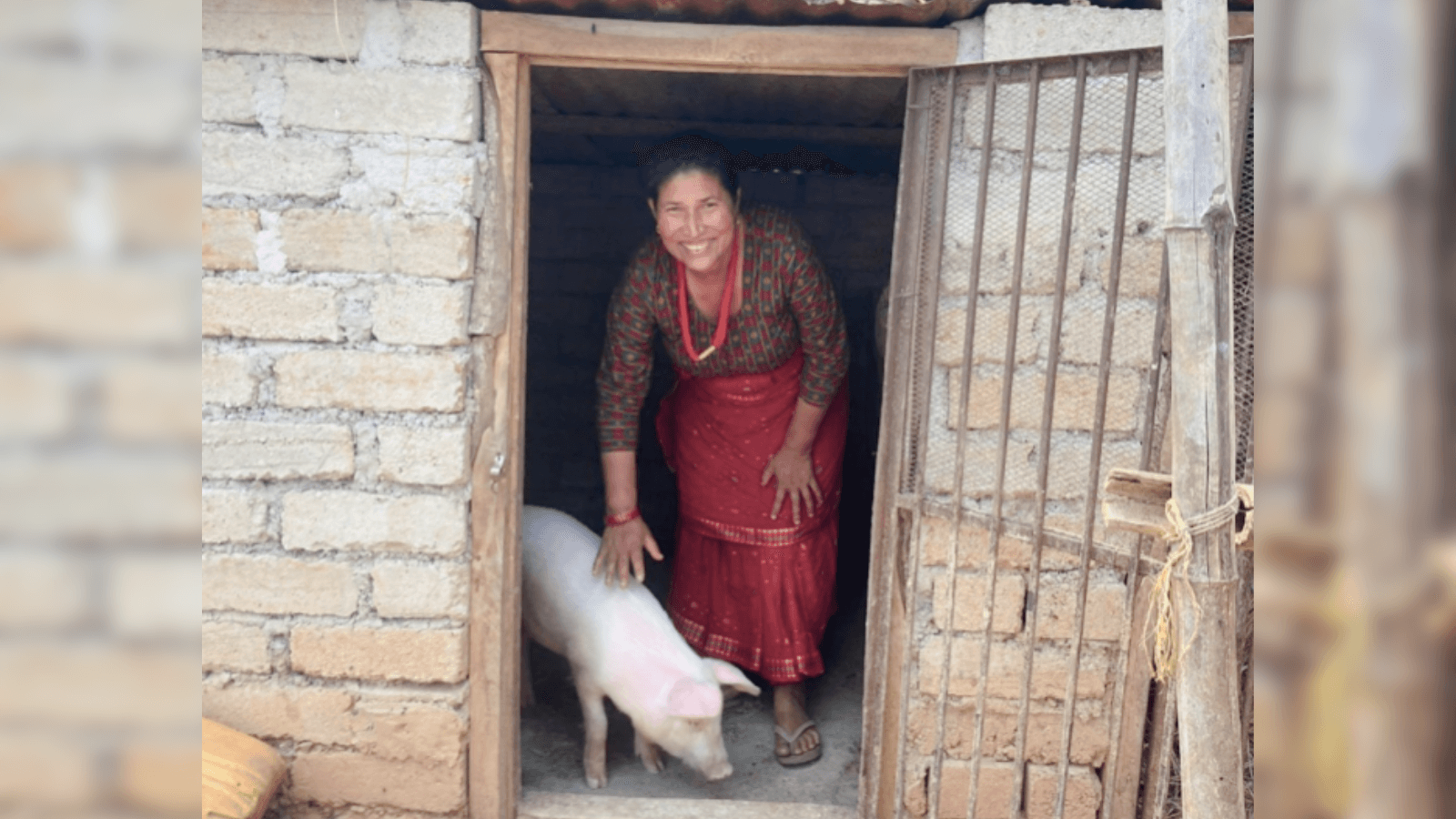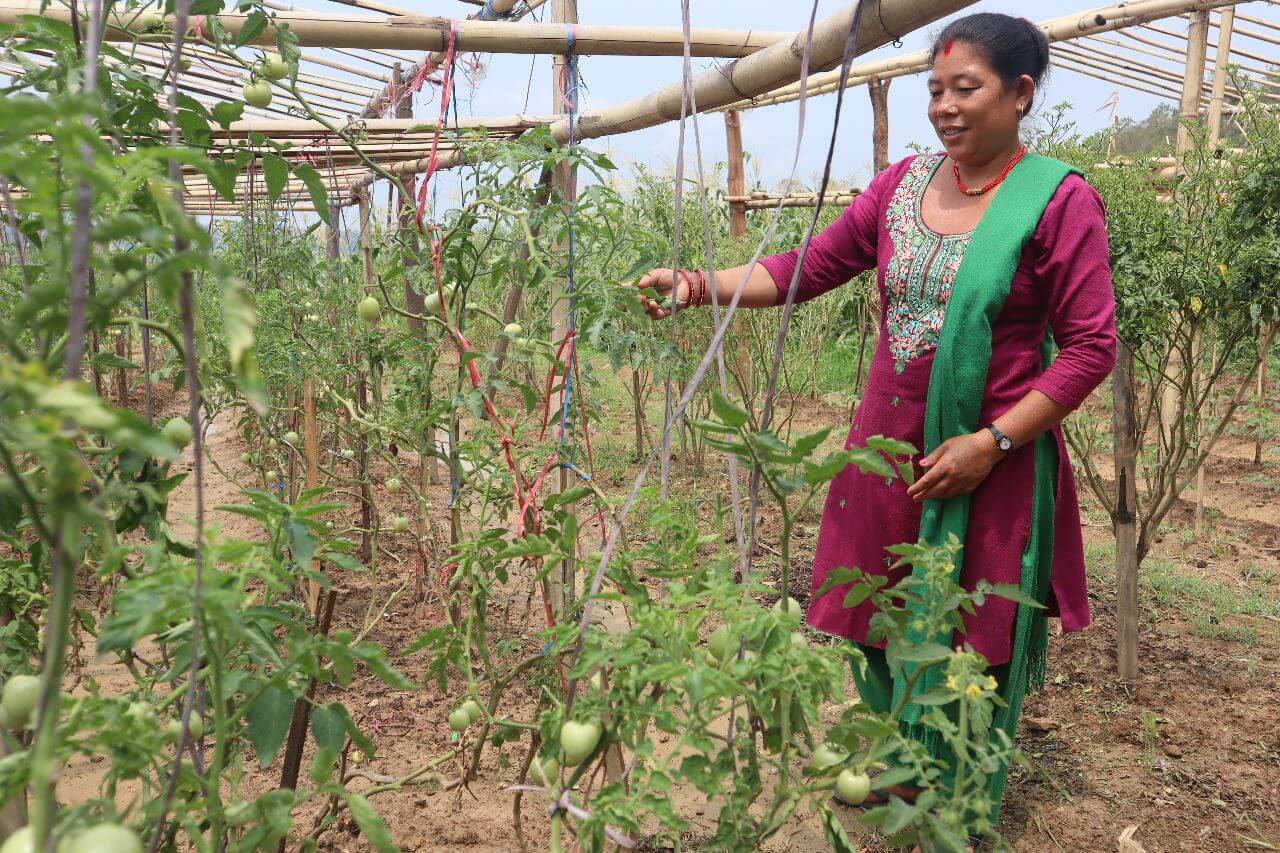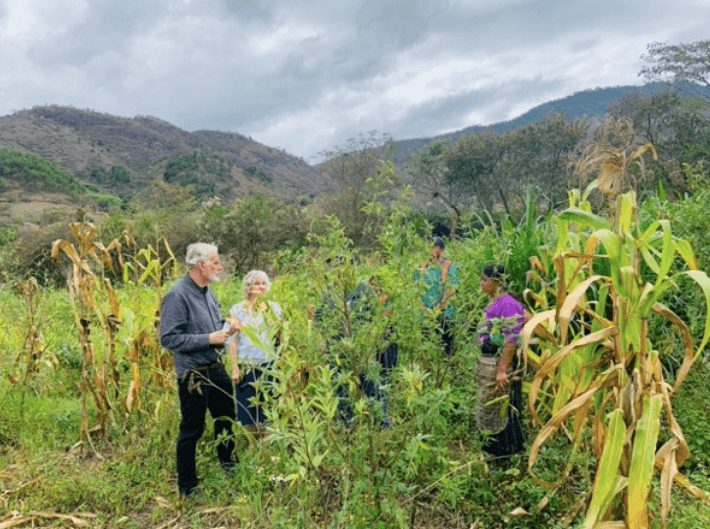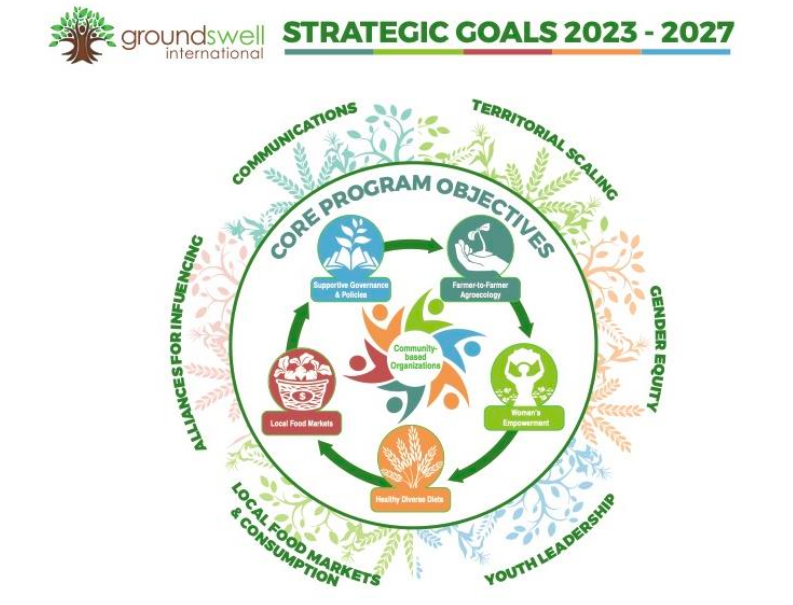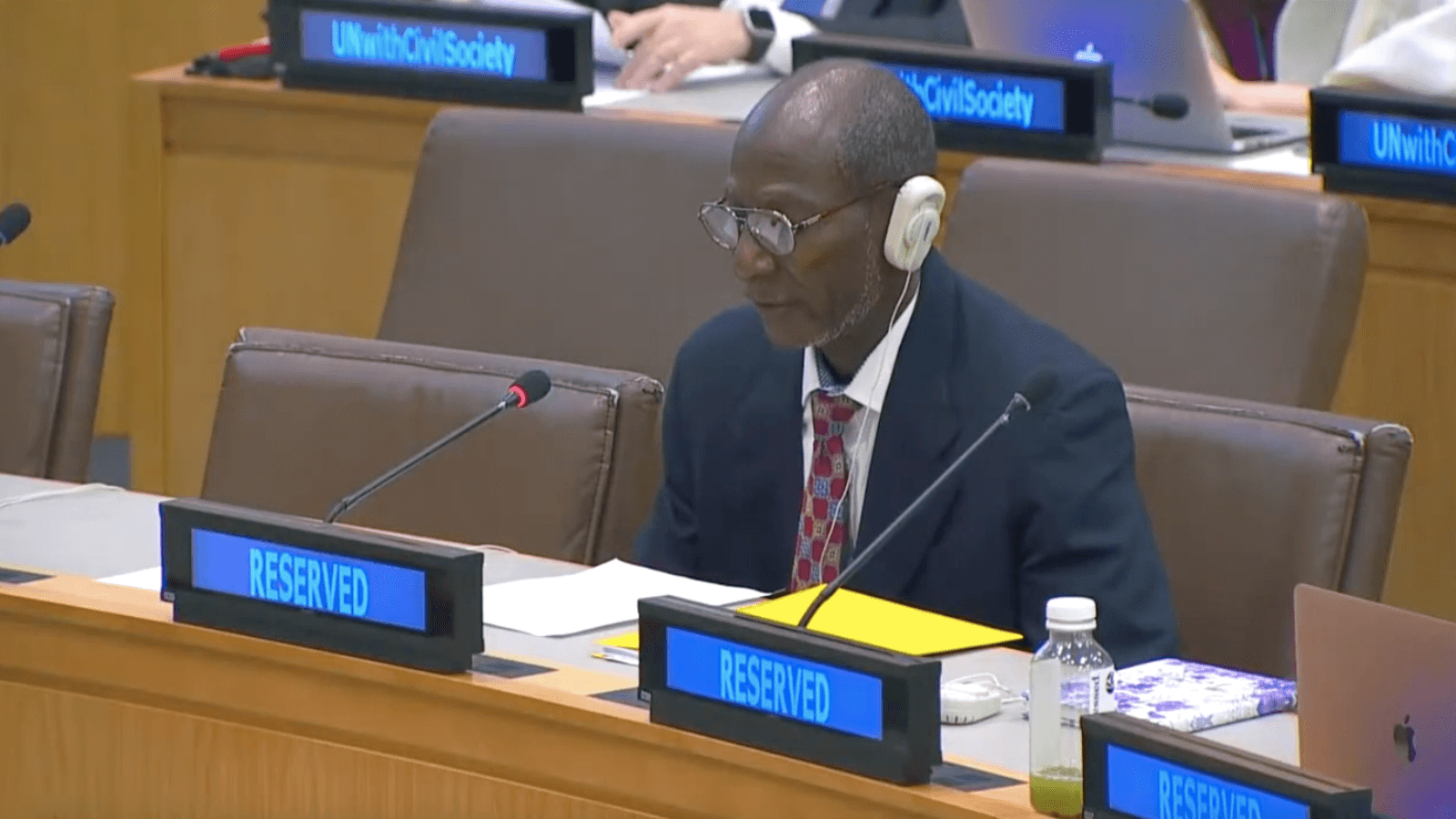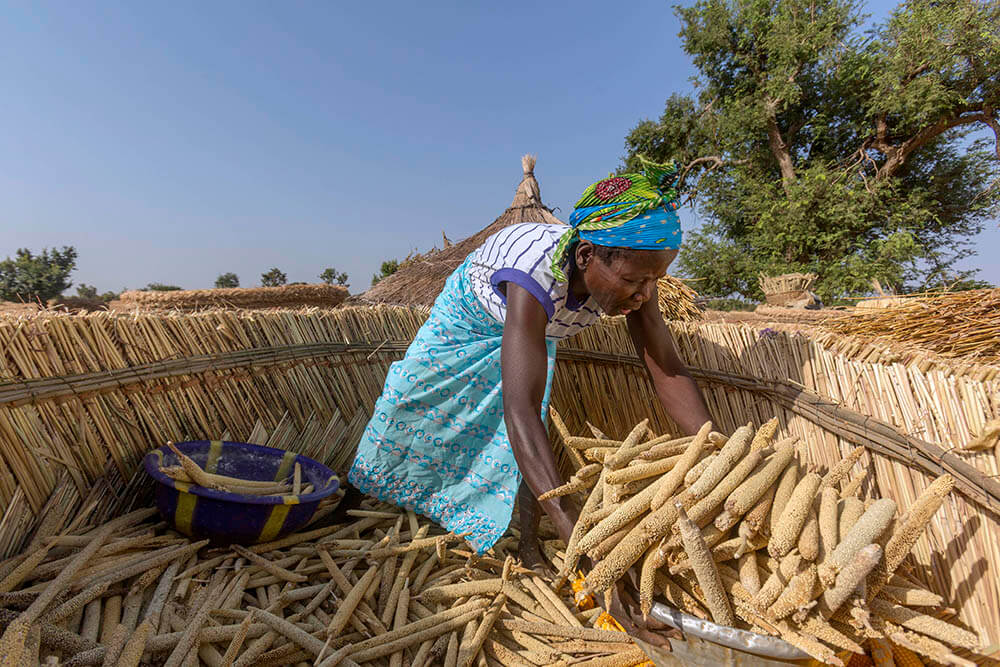by Jacob Brescia-Weiler On a hot morning in early June, seated in front of her home surrounded by family and neighbors, Radha Purkoti of Ratmata, Mandan Deupur Municipality, Kavre, shared with me her progress in improving her and her family’s lives. Radha is a livestock and vegetable farmer in the Kavrepalanchok District of Nepal. She has been a member of the Jaruwa Sustainable Farming Group since its founding in 2016. Comprised of 28 members, the group is one of 27 women’s savings and credit and farming collectives supported by Groundswell International and its partner organization, … [Read more...] about Empowering Women in the Field: Radha’s Story
Empowering Women in the Field: Binda’s Story
by Jacob Brescia-Weiler Binda Ayu is a tomato farmer in the Sindhuli district of Nepal. As a member of the Creative Women’s Group, the first savings and credit cooperative of its kind in the area, she is supported by Groundswell International and its local partner organization, Sindhuli Integrated Development Services (SIDS/Nepal). Groundswell Programs Empower Women Binda joined the savings and credit group 18 months ago, motivated to access high-yielding variety seeds and support with raising livestock. Given the quickly growing productivity of her farm since then, she is … [Read more...] about Empowering Women in the Field: Binda’s Story
Mayan Seeds of Hope
By: Edwin Escoto During my recent trip to some of Guatemala’s villages, I had the opportunity to witness how passionate the indigenous people (Maya Achi) are about preserving their native seeds, symbols of their identity, culture, and resistance. I spent one week with my colleagues, Tim and Judelon Lasalle, trying to learn and understand how essential and strategic it is for the Mayan people to control their own seeds – essential because they can decide what type of seed they want to save and strategic because, through the native seeds, they can grow sustainable and healthy food. How … [Read more...] about Mayan Seeds of Hope
An Overview of Our Strategic Framework for the Next Five Years
Traditional agricultural and food systems are not working for people or for our planet. The long-term, systemic flaws have been further revealed and exacerbated by recent crises, like the COVID-19 pandemic and its economic consequences; ongoing and increasing conflict; climate shocks; disparity in women’s access to capital and funding; and high prices for food, fossil fuels, and other goods. Agricultural systems have always been foundational to human survival and the social, cultural, economic, political, and ecological systems we depend upon. The current food system crises underlie … [Read more...] about An Overview of Our Strategic Framework for the Next Five Years
Cantave Jean-Baptiste at United Nations
H.E. Csaba Kőrösi, President of the 77th session of the United Nations General Assembly, has stated it is critical for the UN to engage with civil society organizations, youth representatives, and academia to define transformative solutions for our global challenges. The April 2023 meeting of the United Nations Civil Society Townhall focused on the need for accelerated progress toward the achievements of the Sustainable Development Goals (SDGs) by 2030. The moderated event consisted of an opening statement by the President of the General Assembly followed by three short keynote … [Read more...] about Cantave Jean-Baptiste at United Nations
We stand with AFSA’s Statement on AfDB’s Dakar 2 Food Summit
What are the solutions to "feed Africa?" Please read this important statement from the Alliance for Food Sovereignty in Africa (AFSA). Groundswell International, through our West Africa network, is an active member of AFSA, the largest civil society network on the continent. Diversity, not false solutions, is key to achieving food sovereignty and resilience in Africa As 34 heads of state and 70 ministers return home after three days of ‘food and agriculture delivery compact’ negotiations in Dakar, we reflect on the outcome of the Dakar 2 Summit “Feed Africa: Food Sovereignty … [Read more...] about We stand with AFSA’s Statement on AfDB’s Dakar 2 Food Summit

